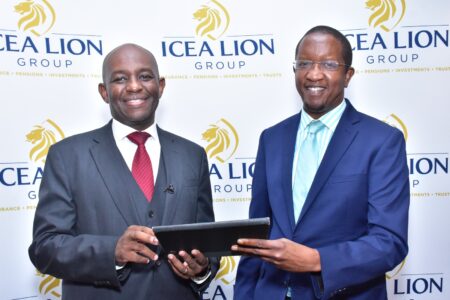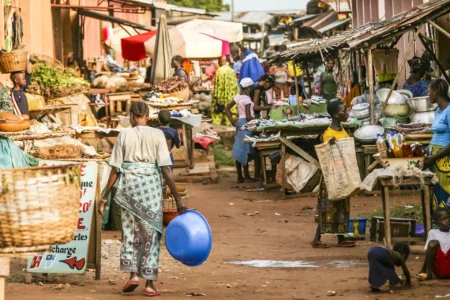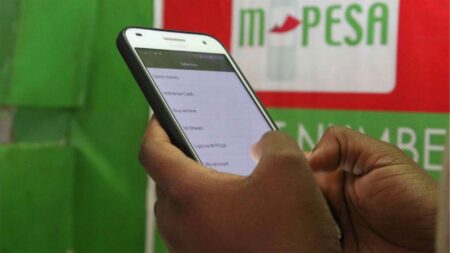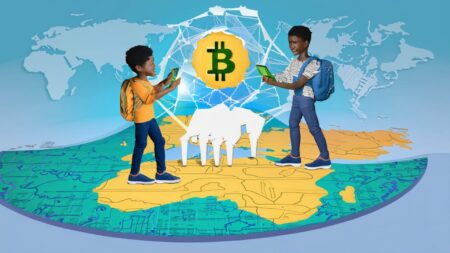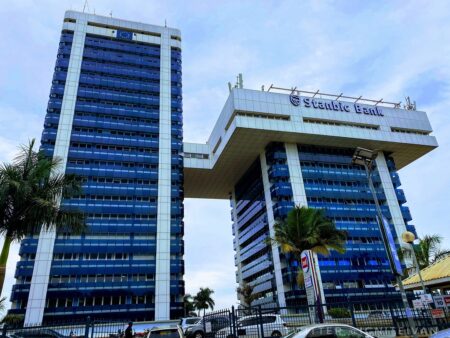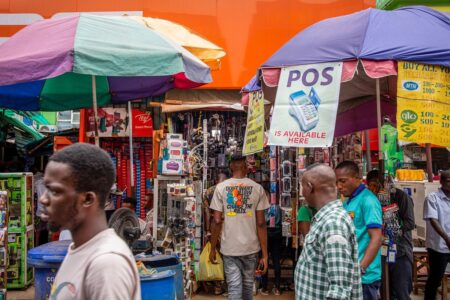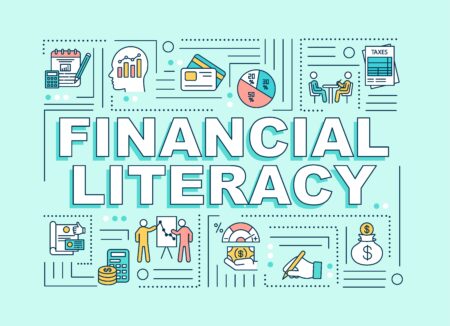- LB Investment brings $1.2 trillion portfolio display to AIM Congress spotlight
- AmCham Summit kicks off, setting course for robust future of US-East Africa trade ties
- Why the UN is raising the red flag on the UK-Rwanda asylum treaty
- Portugal’s Galp Energia projects 10 billion barrels in Namibia’s new oil find
- Wärtsilä Energy offers tips on how Africa can navigate energy transition and grid reliability
- Powering Africa: Africa’s Path to Universal Electricity Access
- Global investment trends at AIM Congress 2024: a spotlight on the keynote speakers
- South Africa’s deepening investment ties in South Sudan oil industry
Browsing: Financial Inclusion
- The increasing food prices have majorly occasioned the rise in consumer expenditure.
- In the review period, 50 per cent of the Kenyans polled indicated static income levels over the last year
- 53 per cent of Kenyans polled allocated less than 10 per cent of their income to travel and leisure expenditures.
The slight drop in inflation in Kenya has failed to soften the impact of Increased consumer spending after posting a 42 per cent rise in spending in the past six months. This is after a new survey showed that the country posted a six per cent rise in Kenyan expenditures compared to the preceding three months, which ended December 2023.
According to the latest spending index from ICEA LION Group, Kenyans’ spending escalated by 6 per cent from January to March this year. However, this growth was more subdued than the previous quarter, which witnessed a 36 per
- Following a slow recovery from the debilitating impact of COVID-19, Africa’s economic growth declined to an estimated 3.8 per cent in 2022 and later deteriorated to 3.3 per cent in 2023.
- Africa is not immune to economic shocks and has recently faced a multi-crisis situation.
- African countries have posted more than 5 per cent output expansions in 2024.
Africas economic outlook
Before COVID-19, Africa experienced 20 years of solid growth and made tangible economic and social progress. However, the COVID crisis brought this progress to an abrupt halt, and many countries, which are under increasingly tight budget constraints, struggled to invest in essential sectors amidst recovering from the aftermath of the health crisis.
Following a slow recovery from the debilitating impact of COVID-19, Africa’s economic growth declined to an estimated 3.8 per cent in 2022 and later deteriorated to 3.3 per cent in 2023.
However, according to a recent UN …
- Registered customers for M-Pesa Ethiopia rose to 3.1 million from 1.2 million as of half the Financial Year 2023/2024, transacting worth $115.63 million.
- Ethiopia’s National Financial Inclusion Strategy 2021–2025 aims to increase financial inclusion from 45 to 70 per cent of all adults by 2025, partly by scaling digital payments through mobile money services.
- The country also aims to increase the use of digital payments from 20 per cent of all adults in 2020 to 49 per cent by 2025.
Revenue growth for M-Pesa Ethiopia
Safaricom’s M-Pesa in Ethiopia reported revenue returns of $277,139.43 over the nine months ending in December 2023.
Following its August 2023 launch, the operations generated $45,000 over the first four months, with further commitment to grow the numbers.
Registered customers for M-Pesa Ethiopia rose to 3.1 million from 1.2 million as of half the Financial Year 2023/2024, transacting worth $115.63 million.
However, the opportunity for …
A new chapter is being written in the vast expanse of Africa, where ancient civilizations once thrived and folklore has been passed down through generations. This chapter speaks of a financial revolution, a transformative movement that promises to redefine the continent’s economic landscape. At the heart of this transformation is the SRS token, a groundbreaking innovation by the Humanity Protocol poised to usher in an era of decentralized prosperity.…
In a recent announcement during the US-Africa Business Roundtable in the United States, Kenya’s President William Ruto revealed that Safaricom, a leading telecommunications company, is establishing a strategic partnership with Apple Inc. The Safaricom-Apple partnership will integrate the widely-used mobile money platform, M-Pesa, with Apple’s ecosystem. This integration will expand M-Pesa’s mobile financial services globally.
President William Ruto announced the deal after he toured Silicon Valley in San Francisco Bay, United States, on 16 September. The Kenyan leader is fast gaining popularity across Africa and globally. He has led from the front in marketing Kenya as a conducive ground for foreign business to thrive.…
- RBZ Governor John Mangudya revealed that as of July 21st, the bank had conducted 11 issuances of GBDT.
- The Governor noted that the bank received 590 applications to purchase tokens equivalent to 325.02Kg of gold.
- In 2022, as the international economic environment worsened, Zimbabwe turned to gold coins were introduced to tame runaway inflation.
Zimbabwe’s struggles with hyperinflation has since been making headlines for decades. In 2009, inflation was so devastating that the country issued a new Zimbabwean dollar (ZWL), shedding twelve zeros from the earlier currency (ZWD).
By November 2022, the annual consumer price inflation for a compressed basket of goods was at 107 per cent in the country and in June, inflation rose to 175.8 per cent following devaluations of the local currency.
According to the Reserve Bank of Zimbabwe (RBZ) mid-term monetary policy statement, inflation increased to 86.5 per cent and 175.8 per cent in May and …
Currently, financial inclusion is a target that all African countries must achieve. Boosting Africa’s financial inclusion will have a positive impact on economic growth and the prosperity of society. Through financial inclusion, everyone has access to a variety of quality, effective, and efficient financial services. Increasing public accessibility to financial service products will further reduce the level of economic and social inequality which in turn will improve the welfare of the community.
One of the efforts to achieve this financial inclusion target is through technology in the form of digital finance. When financial products and services use internet technology, it makes it easier for people to directly access various kinds of payments, shopping, savings, and investments, including loan and credit facilities. Among these digital financial elements, the payment facility is the service that is experiencing the fastest development and contributes greatly to the achievement of Africa’s financial inclusion targets.…
- For millions of households in Uganda, remittances play a vital role in safeguarding food security, healthcare, savings and investment opportunities.
- IFAD data shows 75% of money sent to Uganda is used to fight poverty and improve access to nutrition, health, housing and education.
- The remaining 25 percent is used to support small businesses and facilitate access to financial products.
The UN’s International Fund for Agricultural Development (IFAD) has partnered with Stanbic Bank Uganda (SBU) in a plan to reduce the cost incurred by Ugandans sending money back home by half through a digital payment platform dubbed FlexiPay.
The partnership will also provide remittance recipients, especially in rural areas, with digital and financial training to promote the savings culture and foster digital finance uptake among these communities.
Cost of remittances in Uganda
At the moment, the average cost of sending money back home for Uganda’s migrant workers is 11.3 per cent, …
- Today, many Africans struggle to manage their finances, often using up their salaries before they even receive them.
- This struggle is partly due to a failure of financial inclusion, which is a chance for all individuals to access financial tools.
- Financial inclusion is a means of reducing inequality and bridging economic gaps.
Financial inclusion is a concept that transcends economic borders, embodying the idea that access to financial services is a fundamental human right that can empower individuals to build wealth and improve their lives.
While financial inclusion might appear irrelevant to those who seemingly have access to financial tools, it’s imperative to recognize that a significant portion of the global population, particularly in Africa, still faces barriers to formal financial services.
According to the World Bank’s 2021 Global Findex report, up to 38 percent of adults in developing countries remain unbanked.
Financial inclusion means bridging gaps
At its core, …
Financial knowledge remains paramount in an era in which increasingly complex financial products have become readily available to many. Governments in different countries have put more effort into expanding access to financial services. Consequently, the number of individuals with bank accounts and access to credit products is increasing.
Financial literacy remains crucial to personal and economic empowerment, enabling people to make sound financial choices and manage their finances effectively. Africa suffers from a significant shortage of financial literacy, which hinders its economic growth and development.…





